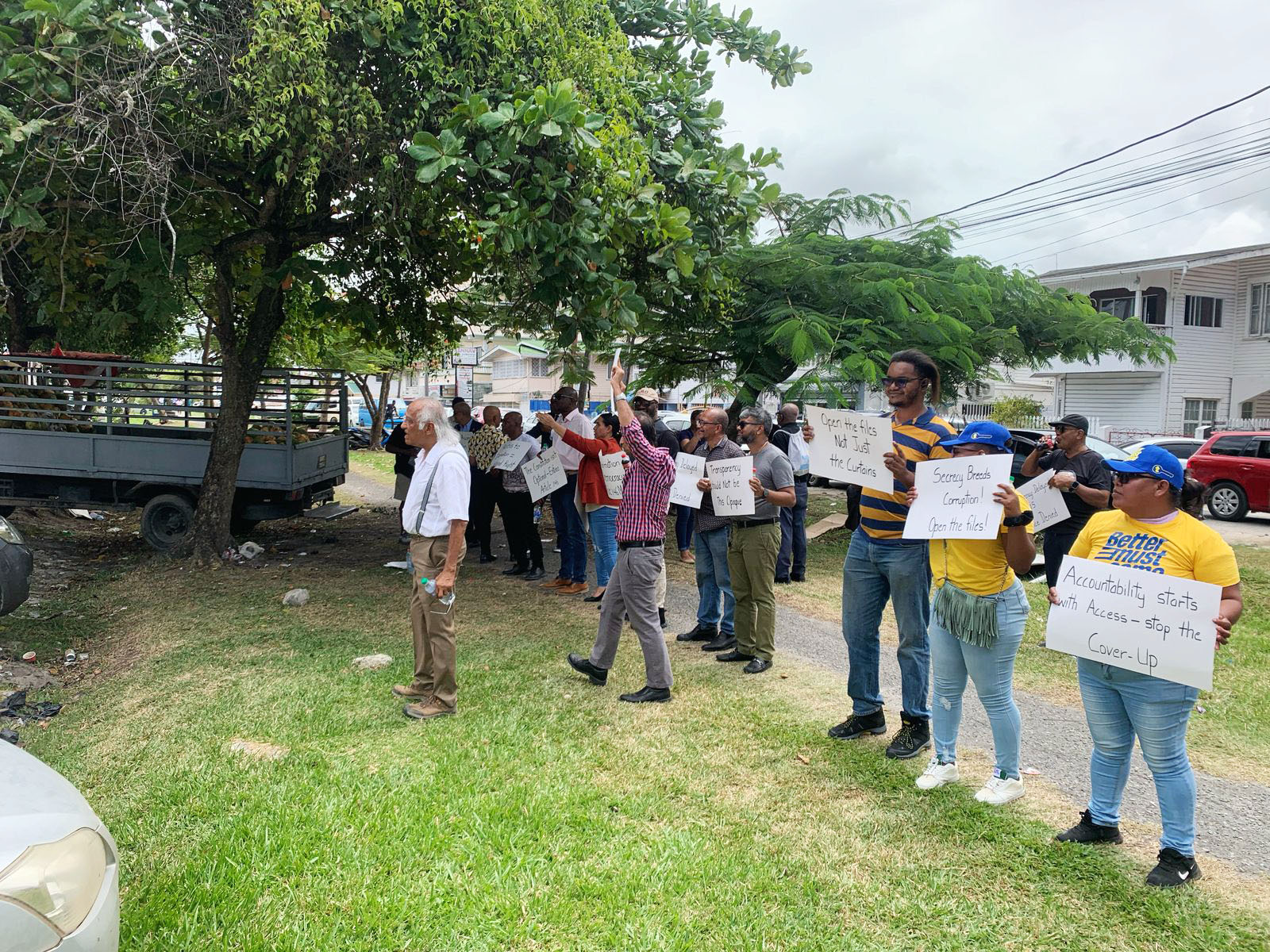Who is the owner of the “proven oil reserves” once the contract is signed between the oil company and the host country? In a typical contract, the “reserves” are monetized and this value is entered on the balance sheet of the Oil Company. The share price of the Company is maintained and traded based on “booked reserves”. In this type of contract, the host country has essentially ceded ownership to the oil company. Whatever control is left to the host country depends on what is written in the contract.
For the host country, the best guarantee of obtaining a decent payoff for its resource is to hire professionals in the oil trade to help negotiate a good contract. This was not done in Guyana’s case.
Middle-Eastern countries are very nationalistic and do not want to cede ownership of their oil reserves to foreign companies. So how would the oil companies claim “booked reserves”? This poses a dilemma, but not really.
ExxonMobil’s lawyers have been known to use a little creativity in contract formulations. Steve Coll’s book on ExxonMobil (I regard this book as a bible on EM), page 573, explains: “The question was whether EM could develop contract terms that would allow it to book Iraqi oil as proved reserves without forcing Iraq’s government to accept production sharing or other contract forms typically rejected in the Arab world on nationalistic grounds.
“ …EM’s lawyers had worked on contract formulations that might allow [Iraq] to claim full ownership over its oil before its people, while structuring EM’s position so that, even short of outright ownership, S.E.C. rules would nonetheless recognize the corporation’s right to book reserves for Wall Street”. (S.E.C. is a US Govt. agency tasked with preventing Securities fraud).
Matter solved. New formulations of Contract now provided for EM to be paid for its technical services, not with cash, but with oil. In this way, EM can still claim to S.E.C. that it has guarantees of oil.
The point of this letter is that EM has teams of the world’s best lawyers and accountants working for it. Note how creative they can be with the Iraqis and the S.E.C. Who does Guyana have?
Guyana’s nationalists and activists – Anand Goolsarran, Chris Ram, Nigel Hughes, Darshanand Khusial (Toronto), Transparency International (Guyana), Sase Singh, and many others all write letters pleading with Minister Trotman to be sure the i’s and t’s of the contract are dotted and crossed with care, but to no avail. Mr Trotman seemed caught up in a headlong rush to grant the production licence even before properly re-negotiating the contract.
He claimed the old 1999 contract signed with then President Janet Jagan was a “good contract”. Really? He also talked about “sanctity of contracts”. At this point, I lost all confidence in Guyana’s Oil Minister. Let ExxonMobil do the talking about “sanctity of contracts”; they have teams of the world’s best lawyers on their staff.
Mr Trotman is not known for being either a contract lawyer or an accountant.
Goolsarran, Hughes, Khusial – they argued persuasively that, in a 50/50 sharing of “profit oil”, there is no guarantee that any or much “profit oil” will be left – simply because Guyana has no control over costs, no ability to evaluate costs, or contractual right to reject what they may see as inflated costs. Khusial cited an accounting joke in which the accountant says, “I could make profit be anything you want”. This joke oftentimes become reality.
Also, $5 billion are reported to have been spent on exploration and other related costs, and this sum is capitalized (paid-up capital) on EM’s balance sheet; why must it be treated as a loan, to be repaid (recovered) on an expedited basis?
Guyana is not going anywhere, and the world’s demand for oil is not expected to suffer a precipitous collapse. Recovery of sunken costs can be stretched out over a 25-year period from profits. This item should have been re-negotiated.
At this point, Oil Minister Trotman has not been forthcoming on explaining what, if any, corporate taxes ExxonMobil will pay. Article 15 of the Contract on taxation is written in obscure legalese; it should be written for the layman to be able to read and understand.
A reasonable clause that should be in the contract also is that, within a 5-year period, EM’s Guyana workforce should comprise of at least 75% Guyanese. It is Guyana’s resource, and Guyanese should be given the opportunity to acquire skills and work experience in all aspects of the oil trade. This oil business will be in Guyana for at least the next 50 years.
Without this clause, Guyanese workers will lose out.
In March, we read of EITI being set up under the auspices of the Oil Ministry. EITI should be an independent body. Now, 5 months later, we have stopped hearing anything about EITI. Guyana can do better.
Sincerely,
Mike Persaud










